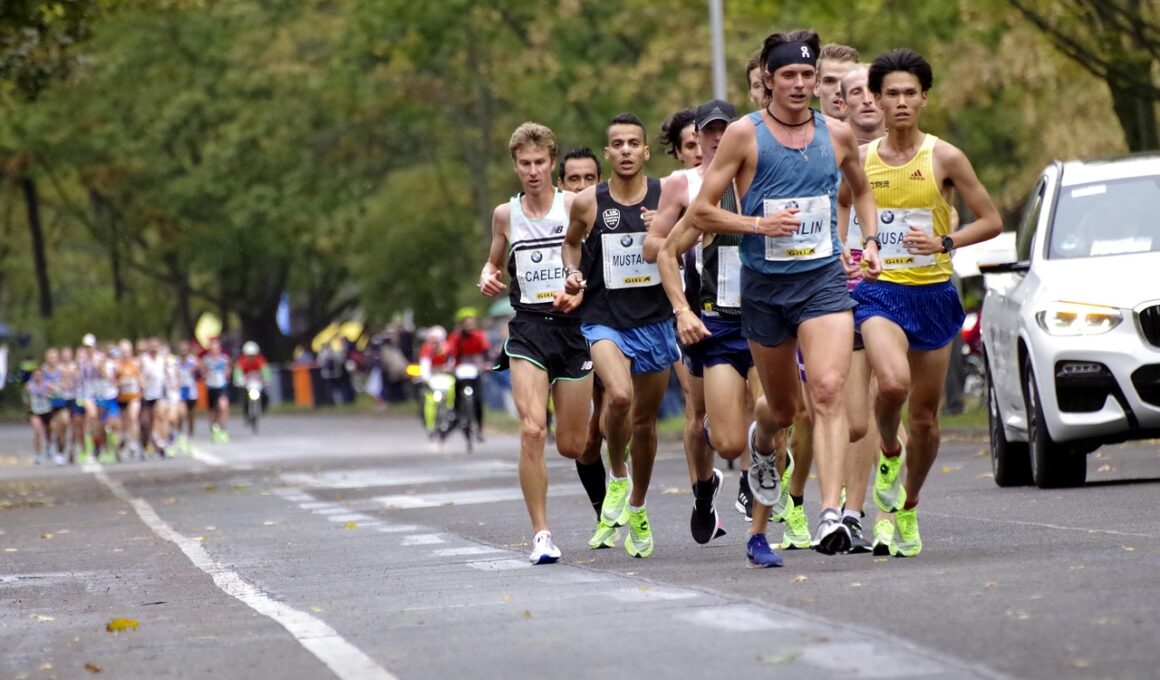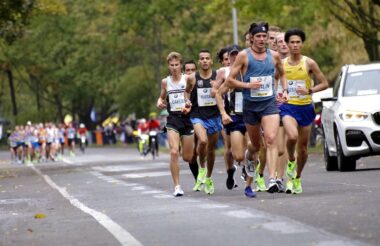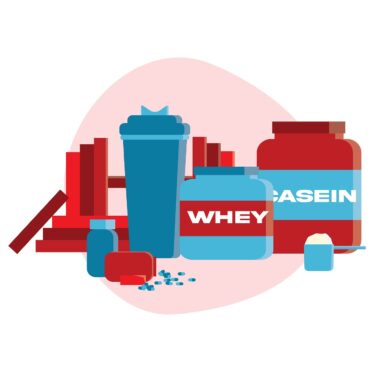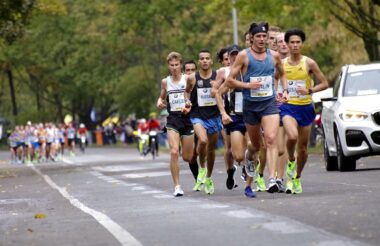How to Manage Gastrointestinal Issues During Endurance Events
Endurance athletes often face gastrointestinal (GI) issues during long events, which can hinder performance and enjoyment. Understanding these problems is crucial for successful management. Factors contributing to GI issues include the intensity of exercise, hydration levels, and nutrition choices. Proper preparation can help mitigate these effects. Athletes should familiarize themselves with potential symptoms, such as bloating, cramps, nausea, or diarrhea, which might arise during training or competitions. These symptoms can lead to decreased energy levels, overwhelming discomfort, and ultimately, a failure to meet performance goals. To counteract these challenges, athletes should prioritize a nutrition strategy tailored to their needs. This means focusing on easily digestible carbohydrates, low-fiber options, and gradual increases in nutrient intake leading up to and during events. Sometimes, high-fat foods, dairy products, and caffeine should be avoided, as they can exacerbate GI upset. Being attentive to what one eats prior to endurance activities can have a profound impact on performance and overall well-being. Collaborating with nutritionists or dietitians specializing in sports can further streamline these approaches, ensuring optimal performance and minimal discomfort during events.
Additional factors to consider include hydration and electrolyte balance, as imbalances may worsen GI discomfort. Athletes must aim to maintain adequate fluid intake before, during, and after exercise, especially if competing in hot or humid conditions. Source hydration strategies often involve sipping water as opposed to gulping it down, as the latter can lead to bloating. Successful endurance athletes prepare for events by creating individualized hydration schedules that suit their exercise routine. Incorporating electrolyte supplements can also aid electrolyte balance and minimize the risk of cramps. For some individuals, experimenting with different supplements might be necessary to identify beverages that agree with their digestive system. Emphasizing hydration not only supports function but plays a vital role in nutrient transport to muscles during endurance activities. Athletes should be cautious about over-hydration, which can result in hyponatremia, leading to serious medical issues. Monitoring hydration status through urine color or body weight measurements can help ensure optimal hydration levels. Staying attuned to one’s body signals is key in navigating hydration and minimizing gastrointestinal troubles effectively across training and competition settings.
Nutrition Timing and Strategies
The timing of nutrient intake plays a pivotal role in managing gastrointestinal challenges for endurance athletes. Planning meals and snacks around training sessions can help optimize digestion and absorption. A common strategy involves eating carbohydrate-rich meals two to three hours before workouts or races, allowing sufficient time for the body to digest and absorb nutrients adequately. For longer races, athletes should also practice fueling during exercise with sports gels, chews, or drinks containing easily digestible carbohydrates. Consuming small amounts frequently can prevent the gut from becoming overloaded, thus reducing the likelihood of gastrointestinal discomfort during strenuous activities. Athletes should also be familiar with their body’s optimal fueling solutions by practicing nutrition strategies during training. Developing these habits in training allows for better testing and adjustment, reducing the chance of encountering issues on race day. Monitoring individual responses to different fueling options can refine strategies, helping athletes find what works best for their unique physiology. Prioritizing a systematic approach encourages better management of GI concerns, promoting overall health and performance during endurance events. Having a consistent nutrition routine enhances both physical capability and emotional well-being for athletes at all levels.
Beyond nutrition and hydration, psychological factors can also contribute to gastrointestinal issues during endurance events. Stress and anxiety levels may increase during competitions, which can exacerbate GI discomfort for some athletes. Recognizing the mind-body connection is crucial in effectively managing these symptoms. Incorporating relaxation techniques, such as deep breathing, visualization, or mental rehearsal, can provide significant benefits, as they help athletes to stay focused and calm. Learning to control stress responses can prevent the onset of symptoms caused by heightened anxiety. Athletes should also cultivate a routine that encourages relaxation prior to races, whether through initial warm-ups, listening to music, or engaging in conversations with teammates. Additionally, practice conditions that replicate race day scenarios, including managing nutrition and hydration while coping with stress, can help create a fail-safe mindset on the actual day. Addressing the psychological aspects of performance can lead to improved confidence and adaptability, ultimately minimizing the impact of gastrointestinal issues amidst physical challenges. In conclusion, a holistic approach is beneficial for successfully managing these concerns during endurance events.
Trial and Customization
Individual variability in response to dietary interventions must also guide athletes in managing GI issues. Each athlete’s body reacts differently to various compounds and nutrition strategies. Exploring personalized nutrition practices is essential for developing the best approach to suit an individual’s gut health. This means testing different foods, hydration strategies, and fueling products well in advance of competitive events to identify which options cause minimal distress. Keeping a food and symptom journal can greatly assist athletes in tracking their reactions to specific foods and stressors. By recording results, athletes can make informed choices about which strategies yield the best outcomes and contribute to a more comfortable and efficacious experience. Customizing hydration practices and timing based on experience can also prove beneficial through systematic experimentation. Collaborating with registered dietitians or sports nutritionists can further guide athletes in fine-tuning their approaches. Doing so enhances the ability to navigate training and competitive environments confidently. Relying on a tailored strategy allows athletes to feel empowered, optimizing their performance potential while managing gastrointestinal complications during endurance events effectively.
Ultimately, education remains a vital resource for preventing and managing gastrointestinal issues during endurance events. Athletes should prioritize learning about nutrition, hydration, and more for effective strategies. Attending workshops or seminars focusing on sports nutrition can improve awareness which enhances individual performance. Embracing knowledge will facilitate informed decisions regarding diets, nutrient timing, and hydration practices. Educating oneself about the physiological mechanisms behind gut health will also encourage athletes to become advocates for their own nutrition needs. Moreover, developing a robust support network that includes coaches, ready access to nutritionists, or fellow athletes can further foster well-rounded discussions to identify solutions to common GI issues. Engaging in group discussions can provide insights into alternative strategies, as well as success stories and lessons learned from fellow competitors. Staying connected can facilitate growth across challenges. Building a repository of trialed strategies and experiences among a supportive peer group can serve as an excellent resource. Thus, athletes can transform potential GI struggles into opportunities for continuous improvement and learning while cultivating optimal performance throughout their endurance activities.
Conclusion
Managing gastrointestinal issues during endurance events is a crucial aspect of achieving optimal performance. Athletes should assess their nutrition, hydration, and psychological strategies based on personal experiences and preferences. Emphasizing the importance of preparation extends beyond physical training and technical skills; it also encompasses creating individualized nutrition plans and honing mental resilience. Consistently practicing fueling strategies can prevent unexpected complications on race day while efficient hydration helps maintain electrolyte balance. Optimal performance requires a comprehensive understanding of one’s body responses, enabling athletes to adapt to challenging conditions fluidly. Maintaining a proactive mindset while learning from encounters positions athletes to overcome obstacles and embrace the pursuit of excellence. Through ongoing education and support from peers and professionals, athletes can master the nuances of nutrition tailored to their specific needs. Understanding personal symptoms and responding with tailored strategies using both physical and psychological methods allows athletes to thrive in their competitive environment. In conclusion, with diligent management of dietary, psychological, and emotional components, endurance athletes can conquer gastrointestinal challenges and perform at their best regardless of the distance or intensity of their events.
In summary, gastrointestinal issues can significantly affect endurance athletes’ performance. Implementing a well-thought-out nutrition strategy, emphasizing timing, hydration methods, and psychological coping mechanisms, will help athletes tackle these disturbances effectively. By investing time in education and support networks, the pathway toward minimizing GI issues becomes increasingly attainable. Athletes must embrace trial and customization through various strategies, learning which specific methods resonate with their unique traits. Forward-thinking approaches ensure that endurance athletes cultivate resilient digestive health, thus creating optimal conditions for peak performance during their events. By prioritizing preparation, athletes stand to enhance their overall competitive experience and secure an invaluable opportunity for success, whether that includes achieving personal bests or meeting ambitious performance goals effectively. At the heart of endurance sports lies the demanding balance of physical and mental discipline, where recognizing and managing GI issues represents a vital component for success. Athletes who take the time to hone their nutrition strategies, hydration methods, and psychological approaches pave the way for improved overall performance and greater enjoyment in their athletic journey. Therefore, maintaining focus on these components can unlock unparalleled opportunities for growth, resilience, and sustained excellence in endurance activities throughout one’s athletic career.








